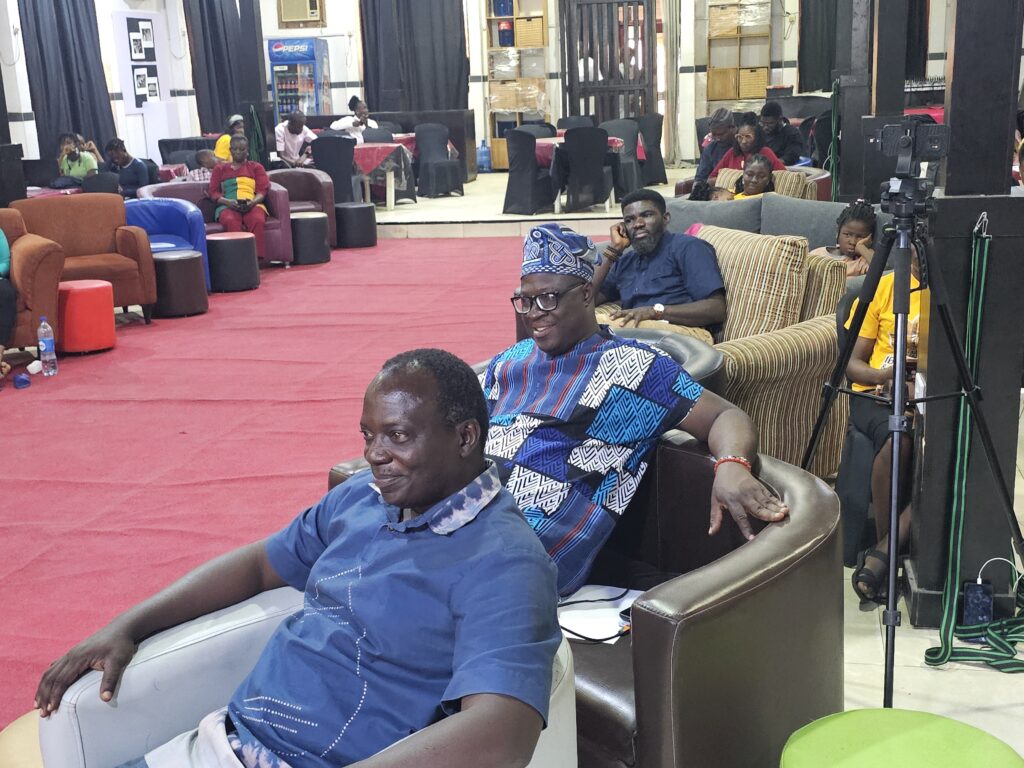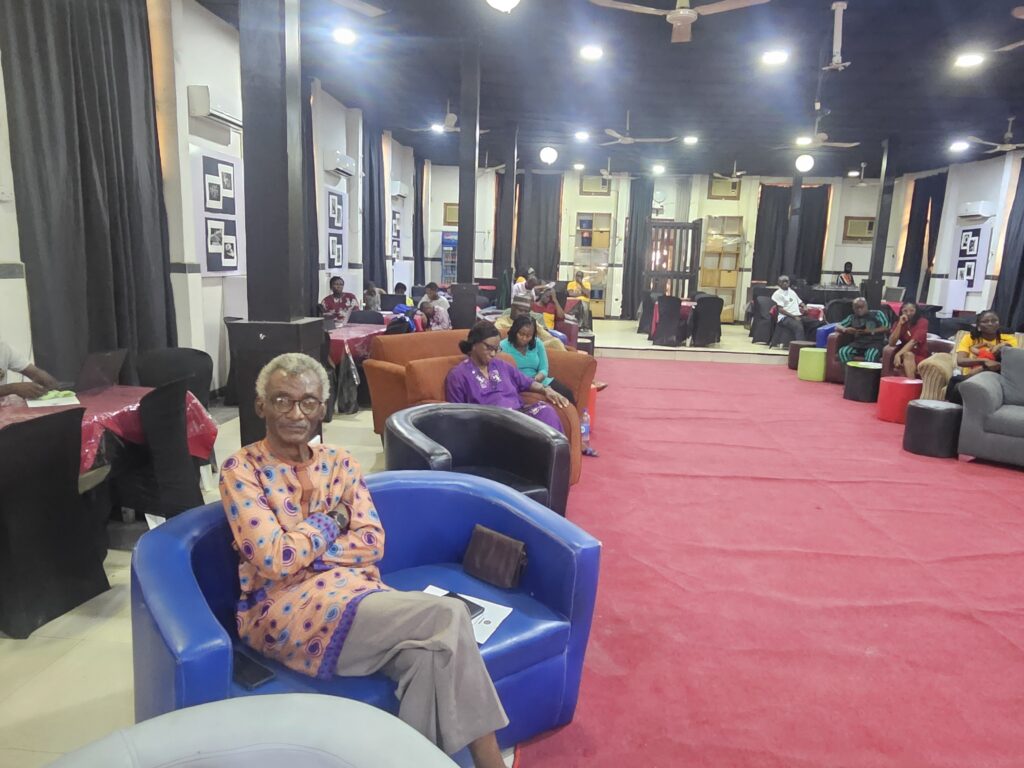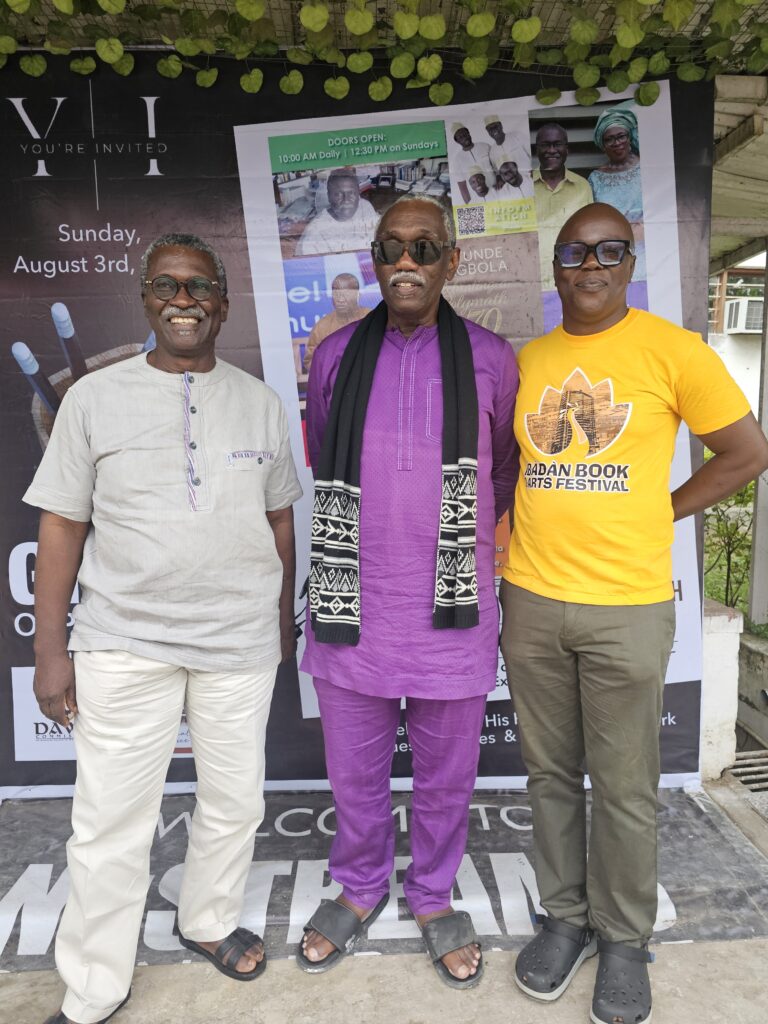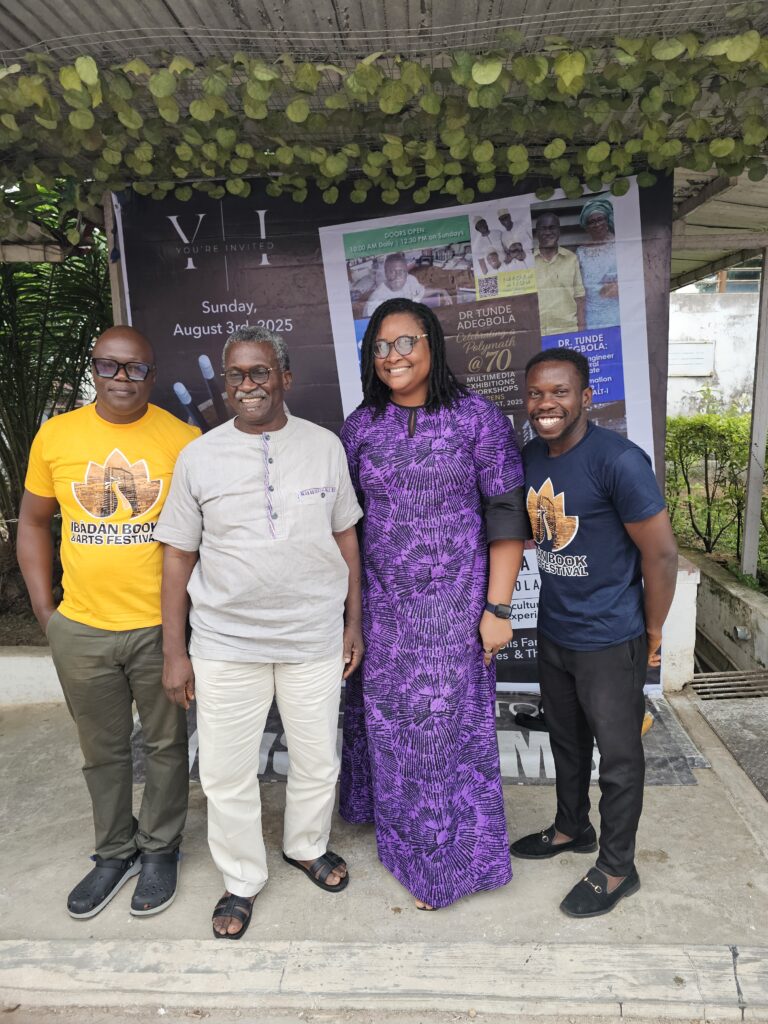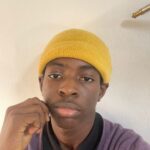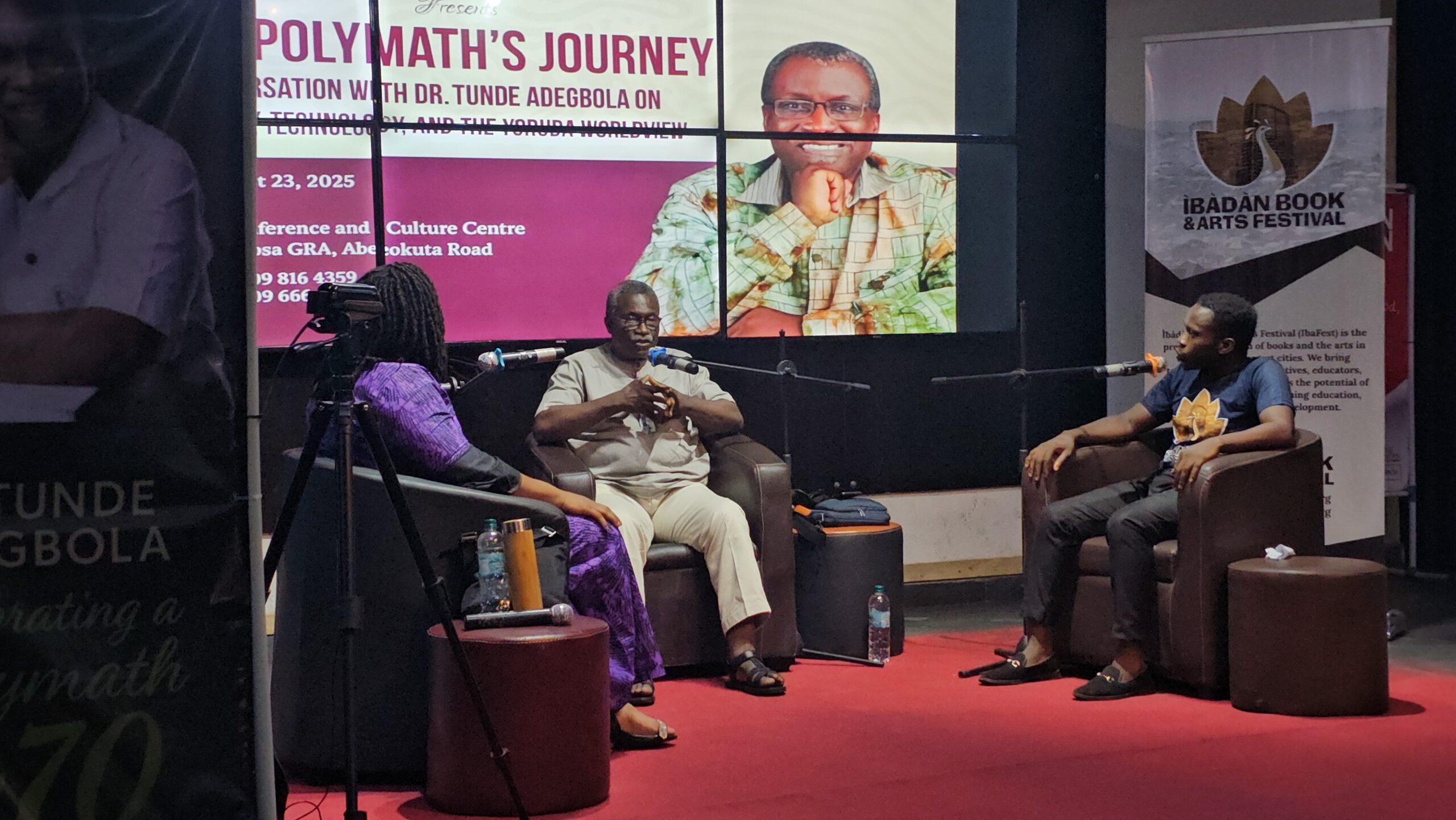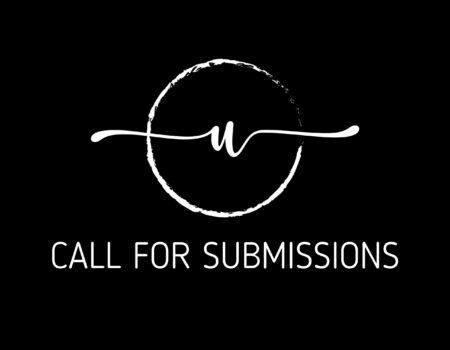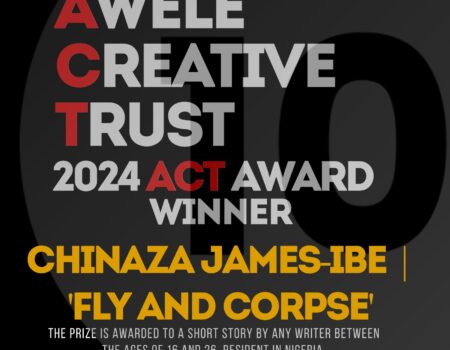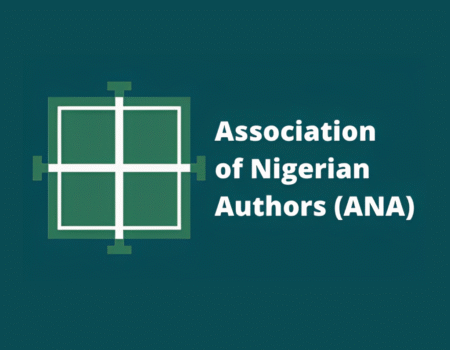The Ibadan Book and Arts Festival (IbaFest), in partnership with NuStreams, hosted an evening with polymath Dr. Tunde Adegbola on Saturday, August 23, 2025, at the NuStreams Conference and Culture Centre, Ibadan.
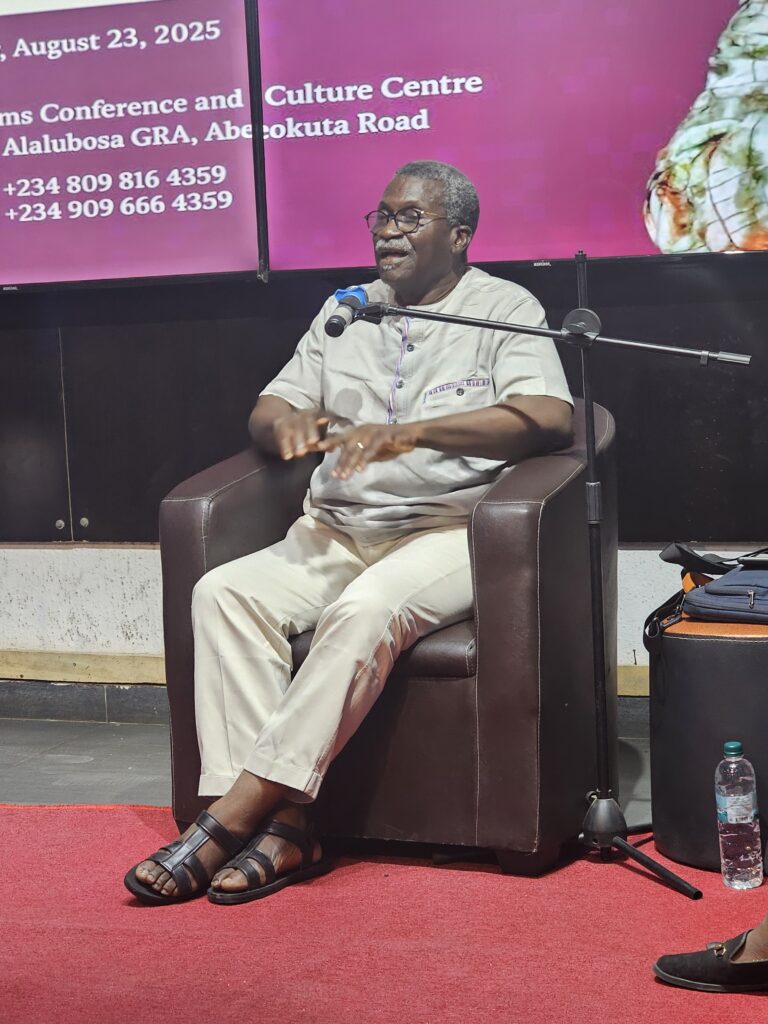
The event, themed “The Polymath’s Journey: A Conversation on Humanity, Technology, and the Yoruba Worldview,” celebrated his life as a scholar, technologist, cultural advocate, and teacher, while also building anticipation for the inaugural IbaFest set for October 24–25 at the University of Ibadan.
The evening opened with a virtual exhibition of awards and artefacts from Dr. Adegbola’s decades of work, including a Microsoft recognition, his role as pioneer engineer at the Ogun State Broadcasting Corporation, and a Silent Achiever Award presented by former Lagos State governor Babatunde Raji Fashola. His lifelong love of music was also highlighted, later culminating in a live performance.
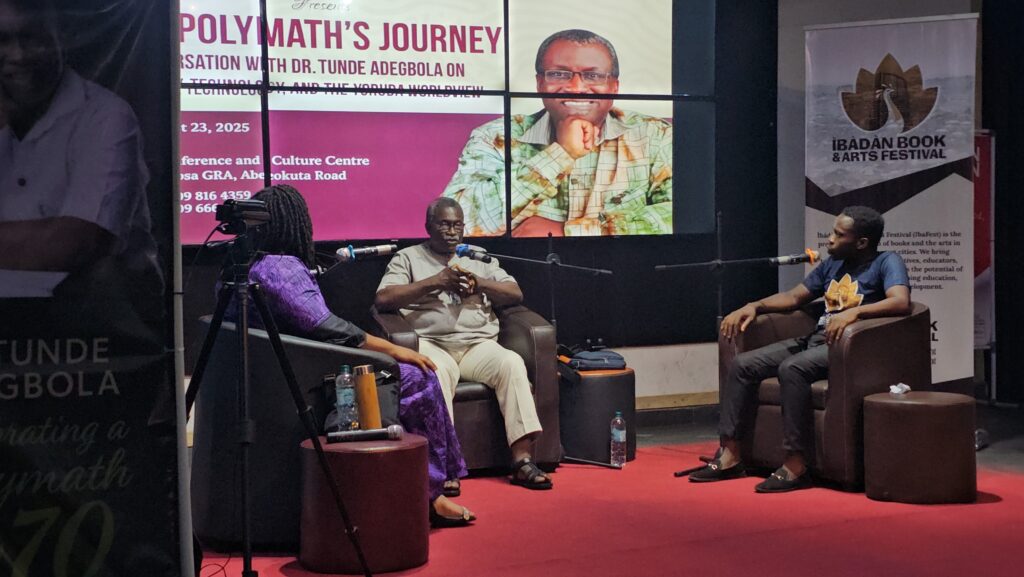
Asked how life feels at 70, Dr Adegbola reflected on his health journey:
“I was diagnosed with prostate cancer at 60, which altered my body and mind. I walked with a stick for almost three years. Therefore, I give thanks to God for being alive to see this moment.”
On education, Dr. Adegbola was emphatic about the importance of indigenous languages. He said:
“We like shortcuts and cutting corners to get results. There is no record of any people who became great by adopting a foreign language. All the countries that taught in their language became industrial societies in the Industrial Age.”
Drawing from his own childhood, he said:
“I am a testimony of education in Yoruba. I was taught arithmetic in idi and eyo, not tens and units. Thereby applying mathematics to language.”
He recalled the famous experiment led by Professor Babs Fafunwa, which showed that children taught in their mother tongue performed better even through secondary school. He lamented saying:
“Sadly, even Yoruba history is now taught in English.”
Turning to Artificial Intelligence, When asked whether he always had diverse interests in science, technology, and music, he responded:
“Knowledge is whole. Unfortunately, in most institutions of the world, music is taught in Arts, when it is better studied in Physics.”
He recalled being told at 15 that he could not combine music and physics:
“But I did not allow such limitations to determine my academic and career trajectory.”
On the subject of Artificial Intelligence, he cautioned students to use AI responsibly:
“AI tools are created by humans, and one of the factors that makes humans different is intelligence. For the first time, we have a competitor. But AI can make students so lazy that they no longer exercise their intelligence. Academia is learning by doing.”
He added saying: “AI is meant to improve the efficiency of your work, not to amplify your laziness.”
He also spoke passionately about indigenous knowledge systems. Responding to a question from poet Tade Ipadeola, he described aroko as:
“a very powerful encryption system, probably equal in value or even better than some of the codes used to fight the Second World War.”
He added that the talking drum was once “faster than pigeons, faster than pony express, faster than human beings carrying messages.” On Ifa, he noted:
“I am an unapologetic Christian, but I studied Ifa and Physics. Ifa is no more than Physics and Mathematics to me, probably a little more.”
Reflecting on his career, he admitted:
“I established the first microcomputer company in Ibadan in 1985, but I have not succeeded in business!”
The night ended with a musical performance alongside his childhood friend Anjola Aboderin, delighting the audience.
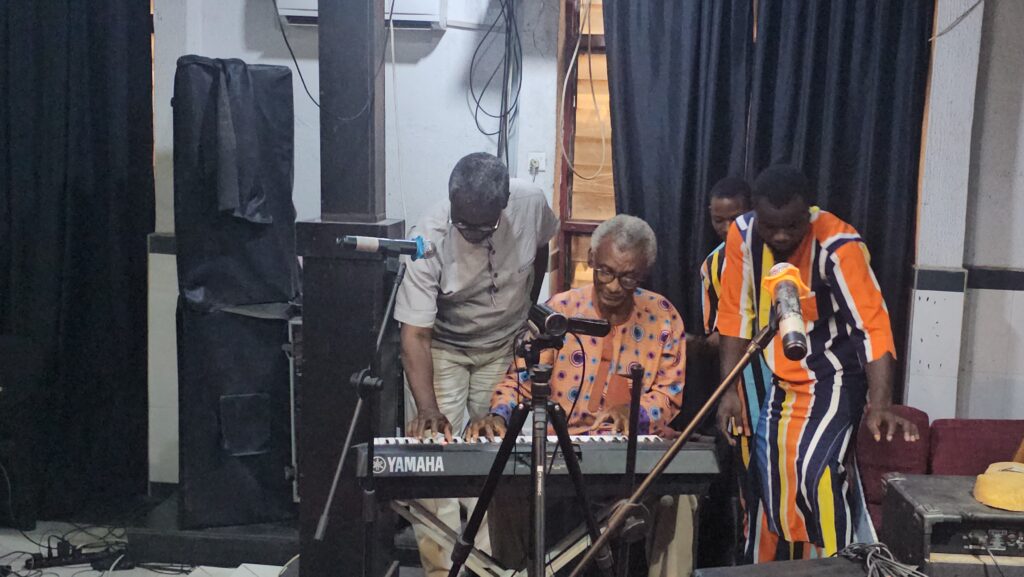
Festival Director Servio Gbadamosi closed the evening by thanking attendees and inviting the public to the first Ibadan Book and Arts Festival on October 24–25. The festival will feature writers, artists, performers, and thinkers from across Nigeria and beyond. He says:
“It will be a gathering to celebrate literature, art, and culture in Ibadan, a city with a proud intellectual and creative tradition.”
More details, he added, will be announced in the coming weeks.
